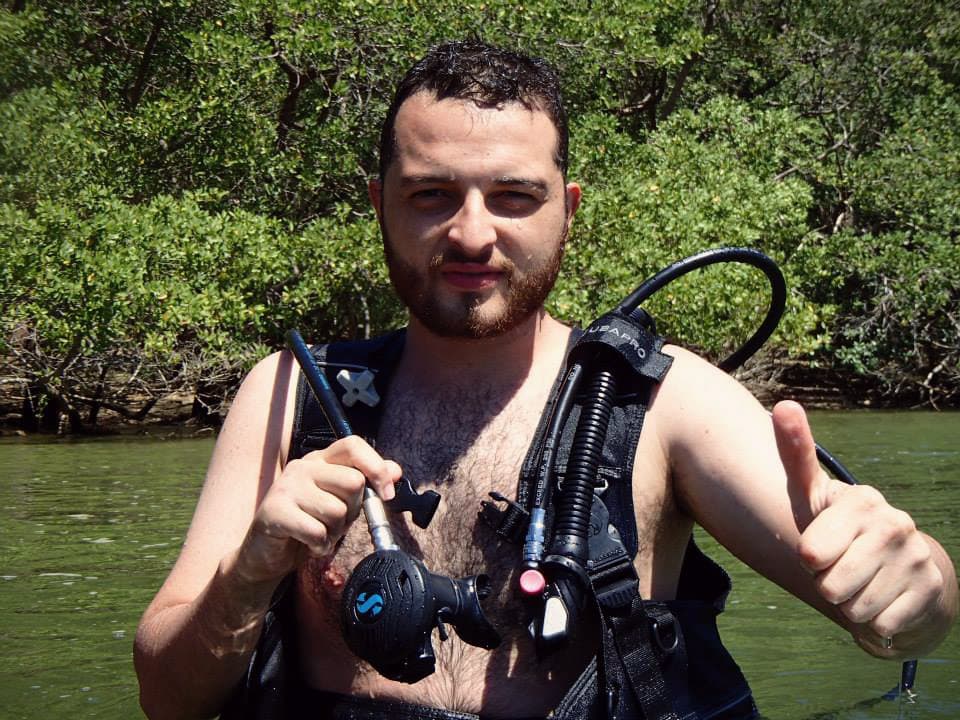Eight years in jail and a US$327,000 fine. That's the penalty biology student Diego Gómez was facing before he was found not guilty of criminal copyright infringement charges.
I am beginning my career with the conviction that access to knowledge is a global right.
Diego Gómez is a postgraduate biology student from Colombia. In 2011, while studying reptiles and amphibians at the University of Quindio – and without permission – he uploaded another academic’s research paper which he had found on the Internet onto the website, Scribd. Gómez’s intention was to help fellow students by making a useful article available to them for free. However, when the author of the paper found out, he pressed charges. Gómez was accused of violating the author’s “economic and other rights,” and is now on trial. If convicted, he faces extraordinarily harsh penalties, including a prison sentence of up to eight years and a possible fine of US$327,000.
In many parts of the world, especially in developing countries, students face significant obstacles when it comes to accessing academic materials. Many university libraries are under-resourced, and the prohibitively high financial cost for permission to access specialized research databases means that students have to find other ways to read the relevant papers; Gómez is one of these students. He – and colleagues in his field – began sharing online useful papers that they came across. The sole aim was to help each other: “The important thing is to make a correct citation,” he said in July 2014, “not claiming the work of another researcher….what we do is reference the findings and make them available to those who need them.”
At the heart of Gómez’s difficulties is Colombia’s extremely harsh copyright legislation (known as el derecho de autor, or “author’s rights”). In 2006, as part of a set of measures aimed at complying with US demands under a free trade agreement, Colombia agreed to strengthen its deterrent to copyright infringement by massively increasing criminal penalties. Though the overall goal was to crack down on commercial piracy, the law is too broadly-worded and places in the firing line individuals who have never sought to profit financially from sharing information.
In some ways, Gómez is a victim of the law’s general inability to keep pace with the Internet. Whereas the US has developed a flexible fair use system, Colombia is still working with rigid legislation devised many years ago; Carolina Botero of Fundación Karisma, the Colombian digital rights group supporting Gómez, describes it as:
“…a collection of laws thought up decades ago in an era of analog and few resources, only taking into account protection and the logic of the market….laws that don’t recognize the transformations generated by the internet as a tool for the creation, production and distribution of content.”
Gómez is currently studying in Costa Rica. His trial was set for November 2014, but was cancelled due to strike action by workers in the Colombian judiciary. A new date was scheduled for April 2015, but this was also postponed. Two hearings took place in May 2016, and another in August 2016.
Fundación Karisma believes that Gómez’s defence is very strong. Firstly, they say, he did not act with malicious intent; secondly, he made no monetary gain from his action and the author of the paper suffered no financial harm. In Gómez’s favour there is also a 2008 Colombian Supreme Court ruling that judged copyright infringement to be criminal only if there was intention to profit.
Gómez’s case has received the backing of several digital rights organisations: as well as Fundación Karisma, the list includes the Electronic Frontier Foundation, Creative Commons, Internet Archive, Knowledge Ecology International, Open Access Button, Derechos Digitales, Open Coalition, Open Knowledge, and the Right to Research Coalition. His case has opened up a huge debate about the nature of the Internet, academic research and open access.
Broadly speaking, the growing open access movement argues that the progress of knowledge requires the easy exchange of scholarly material; to this end it calls for research to be made freely available online, and for it to be made reusable by promoting the use of open licences.
The legal process has transformed Gómez from a student of amphibians into an open access activist, as he said in a public letter in October 2014:
“Definitely, it was facing criminal prosecution for sharing information for academic purposes, for being ignorant of the strictness of the copyrights law that has emboldened my commitment to initiatives that promote open access and to learning more about its ethical, political and economic principles. I am beginning my career with the conviction that access to knowledge is a global right.”
And for Carolina Botero, staff attorney at Fundación Karisma, human rights is the ground on which the battle for open access must be fought:
“It should be clear that the actions of users, non-profit activities, and sharing, are not crimes. Karisma argues that regulation should be developed within the context of basic, guaranteed rights. In a society that has a disruptive technology like the Internet, the exercise of the rights to education, access to science and culture, and respect for freedom of expression must be respected.”
UPDATE: Since this profile was first published, Gómez was found not guilty on 24 May 2017 and was cleared of the charges against him. While for now it means that he can relax, the prosecutor in the case is appealing the verdict.



